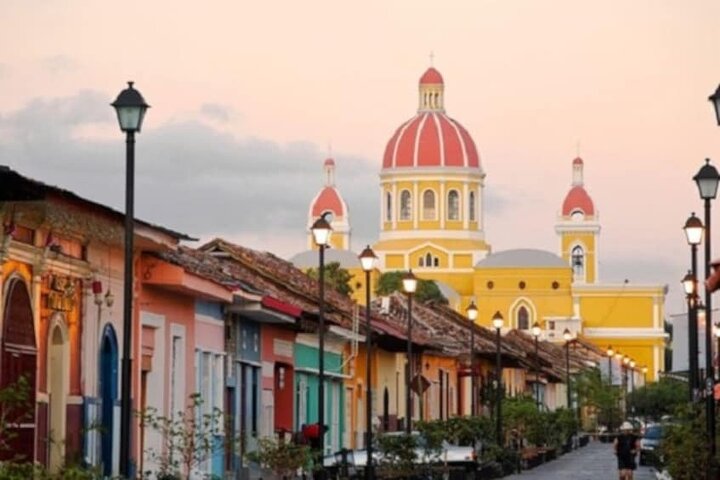
Nicaragua, a land of lakes and volcanoes, offers an unparalleled blend of natural beauty, rich history, and vibrant culture. Imagine starting your adventure with a bird sanctuary tour, where you can explore the unique bird species and hot springs around the volcanoes. For those who crave a bit more excitement, the volcano sandboarding experience at Cerro Negro is a must-try, offering a thrilling ride down the slopes of one of the youngest volcanoes in the world.
History enthusiasts will find the Leon walking tour captivating, as it covers nearly 500 years of history, from colonial times to revolutionary moments. If you’re looking to immerse yourself in the local culture, consider a visit to the Spanish school, where you can engage in a cultural exchange through Spanish lessons and a homestay with a local family.
Nature lovers shouldn’t miss the Ometepe kayaking experience, which offers a unique opportunity to paddle through scenic waters surrounded by diverse wildlife. And for a truly unforgettable day, the Granada city tour combines a boat tour of enchanting islets with a deep dive into the city’s vibrant urban heritage.
Whether you’re an adventurer, a history buff, or someone looking to connect with the local culture, Nicaragua has something special to offer. Come and discover the hidden gems of this Central American paradise.
Nicaragua, a land of lakes and volcanoes, offers an unparalleled blend of natural beauty, rich history, and vibrant culture. Imagine starting your adventure with a bird sanctuary tour, where you can explore the unique bird species and hot springs around the volcanoes. For those who crave a bit more excitement, the volcano sandboarding experience at Cerro Negro is a must-try, offering a thrilling ride down the slopes of one of the youngest volcanoes in the world.
History enthusiasts will find the Leon walking tour captivating, as it covers nearly 500 years of history, from colonial times to revolutionary moments. If you’re looking to immerse yourself in the local culture, consider a visit to the Spanish school, where you can engage in a cultural exchange through Spanish lessons and a homestay with a local family.
Nature lovers shouldn’t miss the Ometepe kayaking experience, which offers a unique opportunity to paddle through scenic waters surrounded by diverse wildlife. And for a truly unforgettable day, the Granada city tour combines a boat tour of enchanting islets with a deep dive into the city’s vibrant urban heritage.
Whether you’re an adventurer, a history buff, or someone looking to connect with the local culture, Nicaragua has something special to offer. Come and discover the hidden gems of this Central American paradise.

















